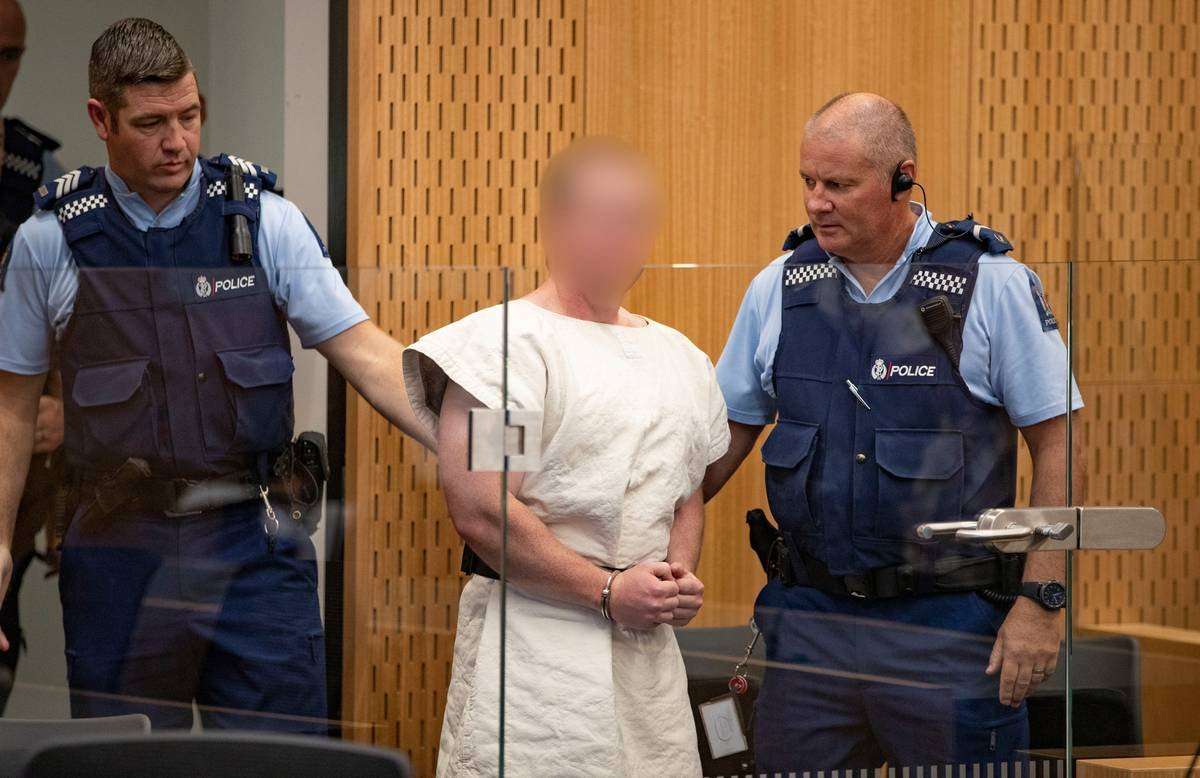The accused gunman of the Christchurch terror attack is being denied access to newspapers, television and radio while being held in segregation.
Denying him access to media outlets would prevent him accessing media reports about the massacre committed on Friday afternoon.
In a statement to the Herald, Corrections said the 28-year-old accused, Brenton Tarrant, was being held under 24-hour surveillance and no visitors have been approved to see him while he was in segregation.
"He is being managed in accordance with the provisions set out in the Corrections Act 2004 and our international obligations for the treatment of prisoners. At this time he has no access to television, radio or newspapers and no approved visitors."
The Herald understands the alleged gunman has been moved from Christchurch to the country's only maximum security prison in Auckland.
Auckland Prison, known as Paremoremo Prison, is home to New Zealand's only specialist maximum-security prison unit and houses some of the nation's most violent criminals.
The prison holds men from minimum to maximum security risks and first opened in 1968.
Andy Langley, Auckland Prison director, last year told the Herald that maximum security inmates would spend 19 to 20 hours a day in cells.
Corrections confirmed its staff worked with "other agencies" to transfer him after his appearance in Christchurch.
It is not known whether he will be flown back to Christchurch for this next court appearance next month or appear via audio visual link.
People lay flowers and spend time at the wall of flowers at the Botanic Gardens in Christchurch.
Meanwhile, a former prison inmate and current Canterbury University criminologist said the accused would have a large target on his back in prison.
"Threats should be taken very seriously," said Canterbury University criminologist Greg Newbold, who has spent time in prison himself earlier in his life.
"I would take that very seriously and I would say he would be in extreme danger.
"There will be people in prison who will be pretty angry about it, particularly the fact that he's a white supremacist."
He said the majority of the prison population was non-white and the accused would not be able to find any white supremacists to band together with, because they were outnumbered in prison and tended to "keep their heads pretty bloody low".
There were "little pockets" of white supremacy in the South Island, but if the alleged gunman were to be found guilty and be convicted of the massacre he would likely serve his time in a maximum-security facility in Auckland.
It was possible he could spend the rest of his life in segregation, and at least the next five to 10 years in "effective" solitary confinement.

accidentalquitter on March 19th, 2019 at 23:05 UTC »
This is the first time after a mass shooting I haven't heard the shooter's name or seen a photo of their face, and this is exactly how it should be.
Al-Andalusia on March 19th, 2019 at 22:22 UTC »
Fitting since his manifesto was a meta meme-ridden shitpost. He wants attention. For him, this isn't over yet.
AvocadoInTheRain on March 19th, 2019 at 21:39 UTC »
Are normal murderers usually allowed those things?